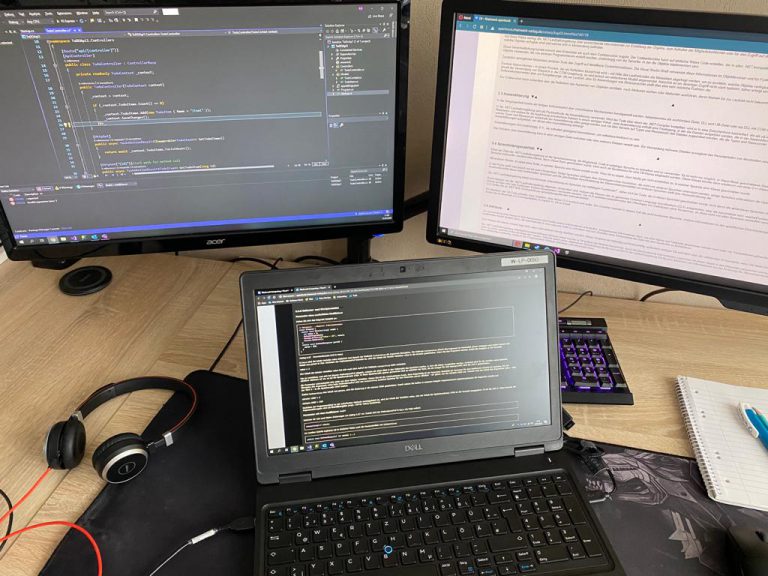What is Scrum?
Scrum is a process model of project and product management, which is used in particular for agile software development. Scrum originated in software engineering, but is nowadays independent of it. In the meantime Scrum is used in many other areas.
Which roles are represented?
Scrum Master – Roughly speaking, a Scrum Master is responsible for the implementation of Scrum, he acts as a moderator, mediator, process facilitator, supporter and coach. He helps the development team as well as the product owner, both roles that will be discussed later, to achieve the goals together by facilitating the work of the colleagues and promoting cooperation.
Product Owner – A Product Owner, PO for short, is responsible for the economic success of a product/project within a Scrum team. He represents the interests of the customer and derives these in the form of product backlog items, PBIs for short, and makes them available to the development team so that they can then implement the customer’s ideas/interests based on the PBIs. The PO also manages the product backlog and sorts it, determining the order of the PBIs according to the urgency of the topics to be worked on. It is also important to know that the PO can delegate the tasks that have been mentioned, but is responsible for them in the end.
Development team – The development team ultimately serves to estimate the PBIs defined by the PO in terms of feasibility and effort. This is done in Sprint Planning, a Sprint is usually a period of 2 weeks during which the development team has the task of working through the estimated PBIs, so the next Sprint is planned with the PBIs defined by the PO. In the course of such a sprint, not only PBIs have to be dealt with, but also bugs, i.e. errors that can occur at any time, which then have to be dealt with within the sprint just like the PBIs. If PBIs or bugs cannot be completed in one sprint, they are carried over to the next sprint, which can of course limit the efficiency and effectiveness of the development team, since new PBIs are already pending even though PBIs/bugs from the previous sprint still need to be dealt with.
PBIs – PBIs or Product Backlog Items are individual elements within a Product Backlog. They define new requirements for the product which then have to be implemented by the developer.






